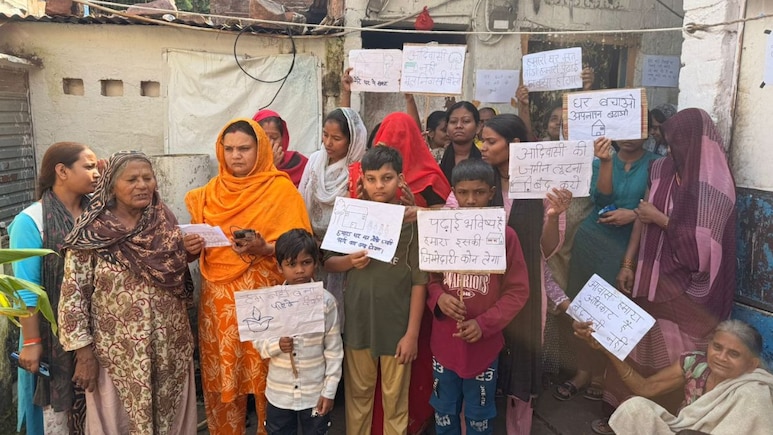
As India celebrates Diwali with homes shimmering in gold and markets echoing with laughter, there lies a patch of darkness behind Manas Bhavan in the heart of Bhopal. In the narrow bylanes of the polytechnic area, where once the light of clay lamps danced on the mud walls, silence now hangs heavy.
More than 200 people from 27 tribal families, daily wage laborers, mothers, children, and elders have spent this festival of light surrounded not by diyas, but by fear.
When this area was nothing but wild, snake-infested land, these families were given space to live. They filled pits with mud, built makeshift huts, and turned wasteland into a home. Seventy years passed; many new births happened and generations grew up here - and now they have suddenly been told to vacate.
Just days before the festival season, the district administration issued eviction notices to these residents. The notice on August 25 said their settlement stood on government and forest land and must be vacated within seven days. The residents were also warned that if they failed to leave, bulldozers would soon arrive.
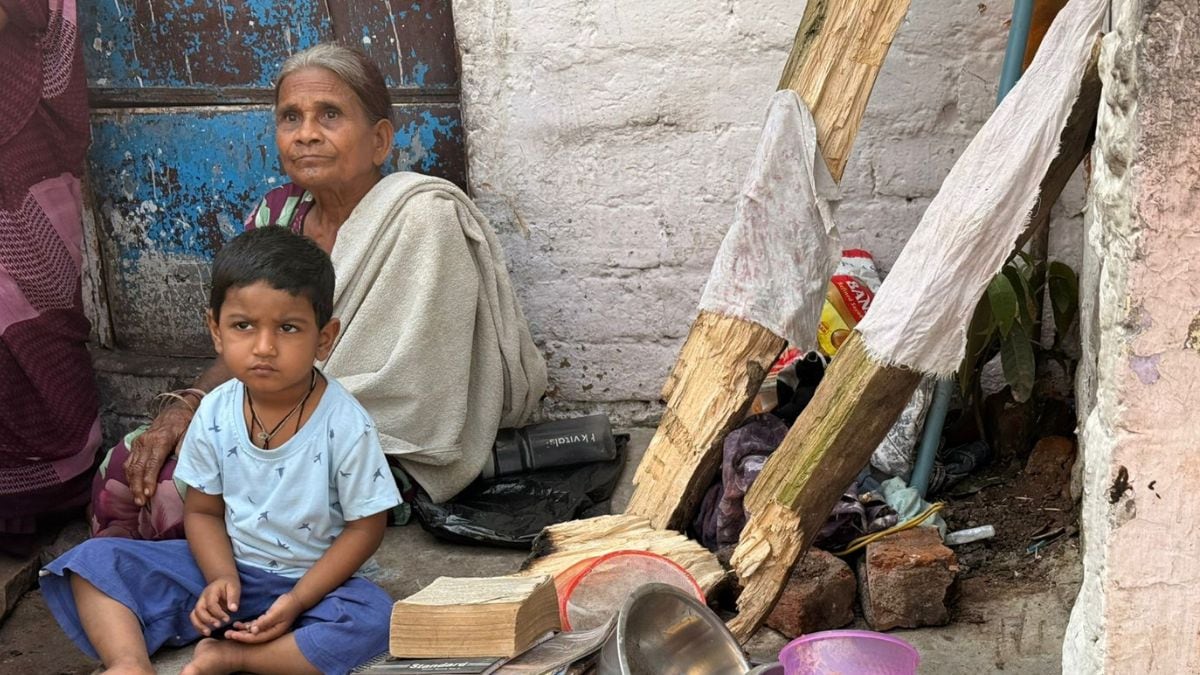
But locals and activists called this move unjust, even cruel. Many of these families have lived here for three generations. Under the Forest Rights Act, they say they cannot legally be evicted without rehabilitation.
"Every year we light lamps; this year, we hold candles of protest," says Kalpana Singh Vakhala, one of the residents. "We are not demanding houses; we are demanding justice."
These lanes once glowed with marigold garlands and the laughter of children playing with sparklers. Today, the same walls are covered with posters written in trembling hands, "Why darkness in our Diwali?Our homes were demolished, our dreams were crushed," says Karma Bai, another resident.
She says her entire life has been spent in this very place, in a 10 by 10 foot room with nearly a dozen people.
"We cook here, we sleep here, we live here," she says. "And today even this roof is being taken away from us."
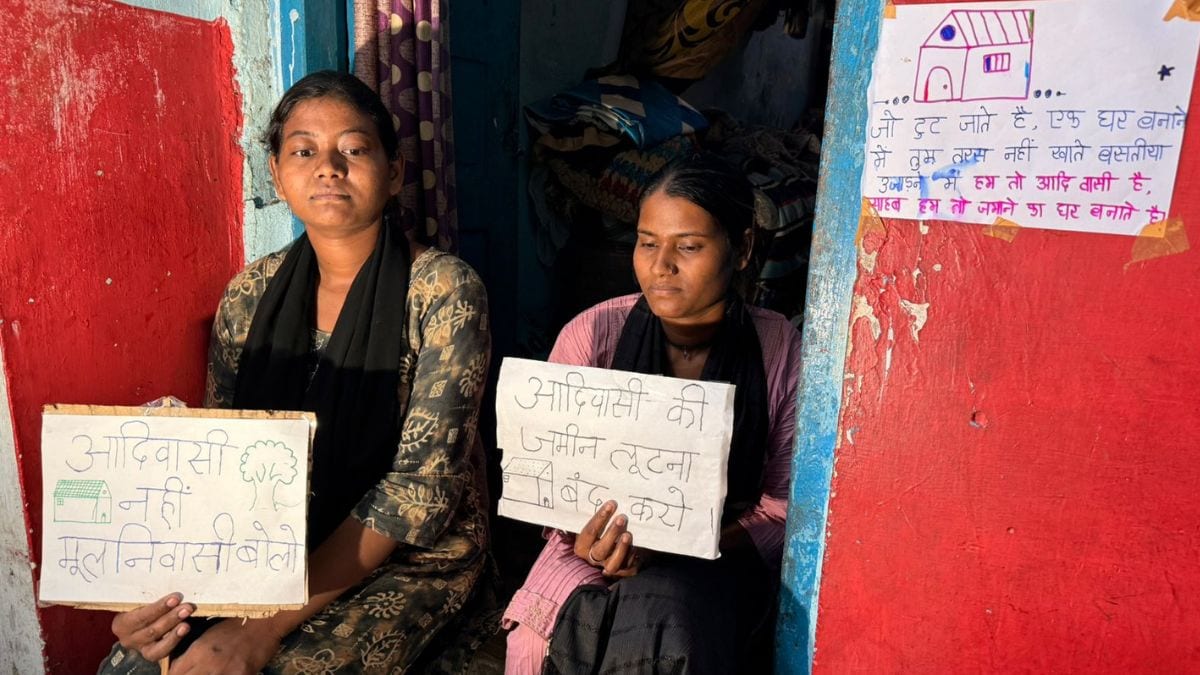
She says she fed her family of 10 by washing utensils in other people's homes. "There's no space here," she says quietly, "and because of that, every son's wife left him. Still, the government takes advantage of our helplessness."
Her wrinkled hands touch the mud walls she once built a home that's now being called "encroachment."
A few steps away from Karma Bai's house lives Chaya Singh. She shares a 7 by 15 foot home with her father, sister, and brother. There is only one small room, divided into two halves - one corner for cooking, the other for praying.
Her father sits before the wall, staring at the faded pictures of gods, whispering silent prayers for a better tomorrow. But whenever the eviction notice crosses his mind, his eyes fill with tears.
"Out of fear that the house might be demolished any day, I haven't painted it, haven't lit any lamps. We don't know which day will be our last in this home," Chaya says.
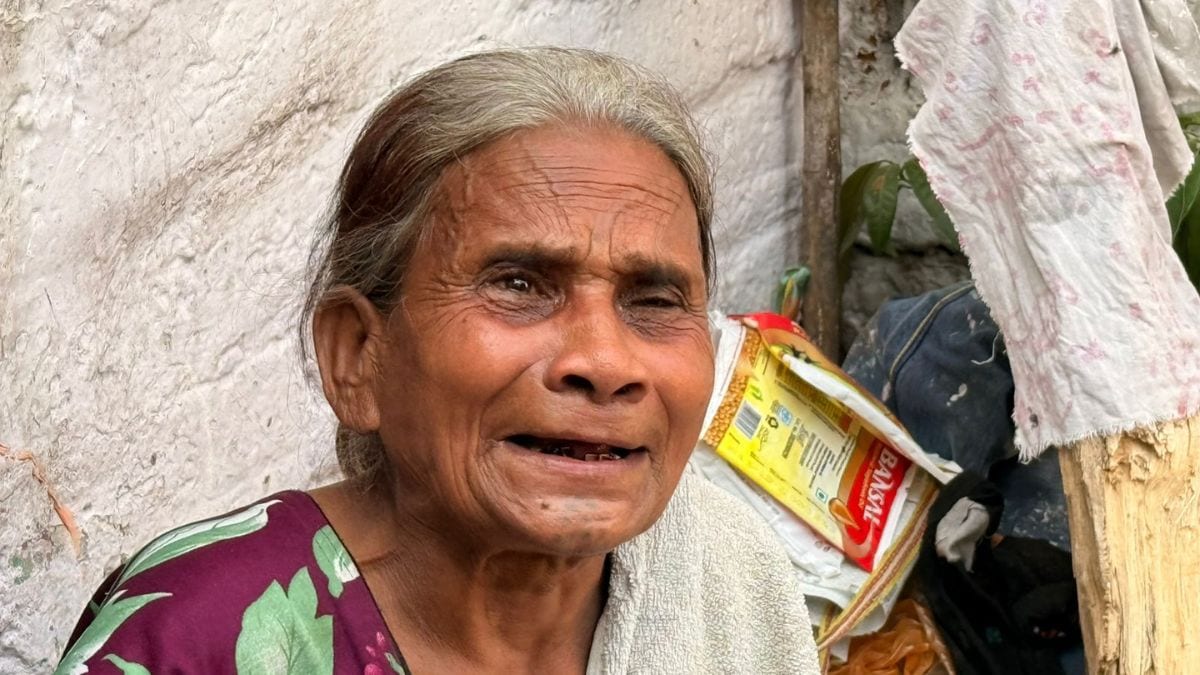
The Diwali lights that once brightened their tiny room flicker only in her memories today. Children here hold posters instead of sparklers, their eyes full of questions and fading hope.
One of them is Kalpana Singh Vakhala, who has lived here all her life. "When the survey was done, they told us it was for the Ladli Behna Yojana. Later, we were served eviction notices," she says.
"The government documents themselves say this land belong to the forest. We are tribals. We have lived here for generations. According to the Forest Rights Act, no one has the legal right to remove us from this land," Vakhala says.
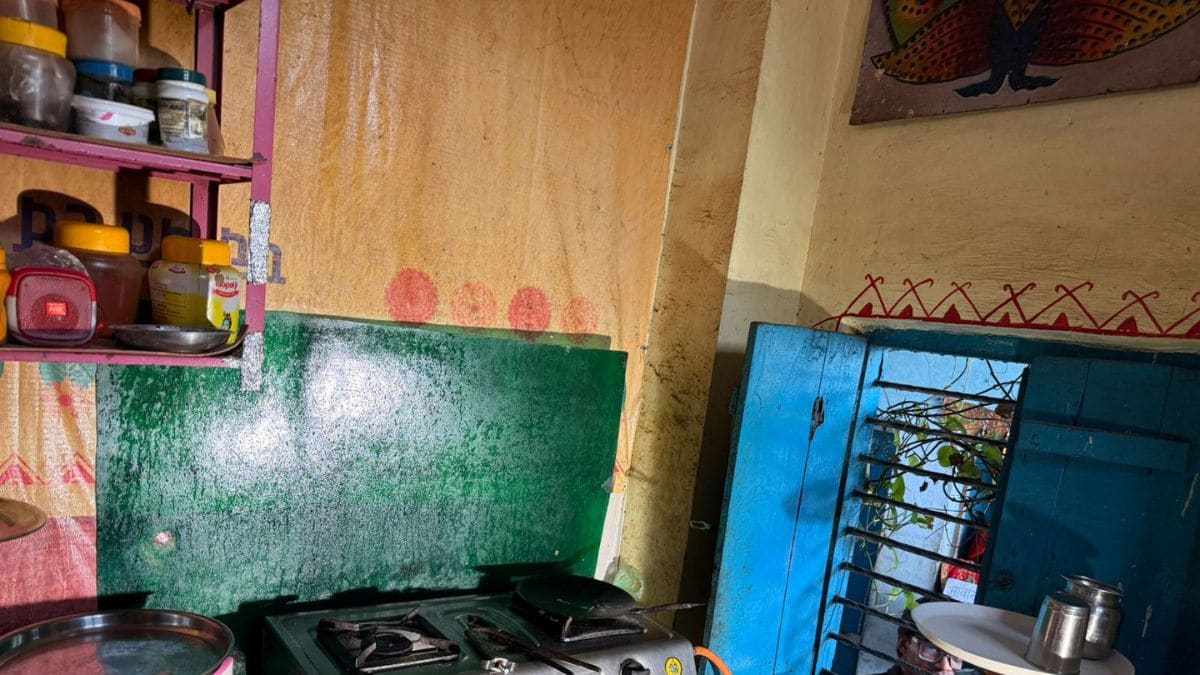
Her voice trembles, but her eyes stay steady filled with the determination of someone who refuses to disappear quietly. This settlement is only a few meters away from the chief minister's house.
"These people are encroaching. Due to Diwali, they have not been shifted yet. They will be relocated soon. The Municipal Corporation plans to shift them to housing being built under the Pradhan Mantri Awas Yojana," sub divisional magistrate Deepak Pandey says.
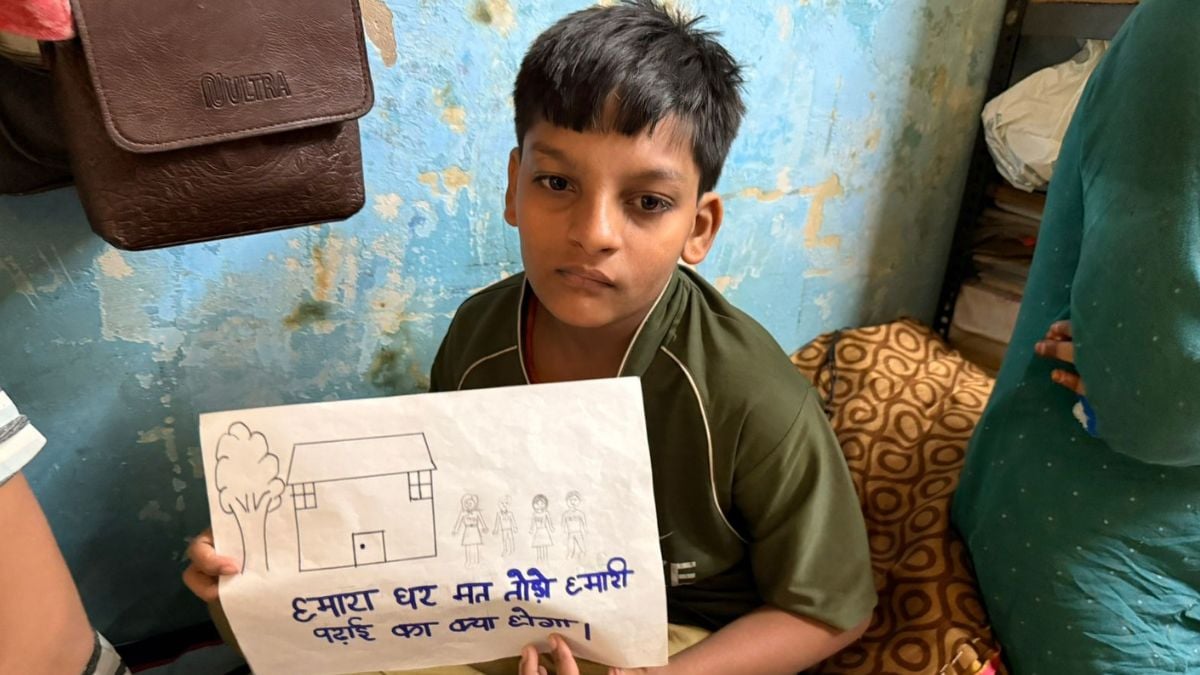
Every year, this neighborhood shimmered in the glow of handmade lamps, the warmth of togetherness spreading through every home. This year, the diyas lie unlit, covered in dust. The only light comes from candles burning before hand-painted posters that pleaded: "We are not asking for a roof. We are asking for the right to live."
Just beyond these darkened alleys, the rest of Bhopal sparkles a city radiant with light and celebration. But in these forgotten lanes, Diwali never arrived.
Track Latest News Live on NDTV.com and get news updates from India and around the world

